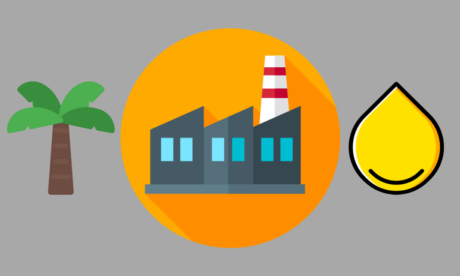Introducing International Development Management

Development is a phenomenon with a pedigree stretching back over 200 years, rather than the period since the Second World War and the beginnings of decolonisation as is generally conceived. This unit, which is broken down into four main sections, focuses on different elements of development. Section 2 examines the context and practice of development and different conceptualisations of poverty. The next section examines the actors and structures of development, and specifically the ‘management’ of development processes. The institutions of development are the focus of Section 4, with a focus on inter-organisational relations and negotiation of development actors. The final section focuses on development in difficult contexts – specifically development interventions, such as peacebuilding, in the context of violent conflict.
Course Curriculum
| Introduction to Introducing international development management | 00:00:00 | ||
| 1 Overview of international development | |||
| 1.1 Development, development management – and you | 00:00:00 | ||
| 1.2 Different Contexts | |||
| 1.2.1 Different contexts | 00:00:00 | ||
| 1.2.2 Different conceptualisations | 00:00:00 | ||
| 1.2.3 Different actors | 00:00:00 | ||
| 1.3 Managing development: professional and personal challenges | |||
| 1.3.1 Acting in public arenas | 00:00:00 | ||
| 1.3.2 Being inclusive | 00:00:00 | ||
| 1.3.3 Making a case | 00:00:00 | ||
| 1.4 Developing institutions: rules and relationships | |||
| 1.4.1 Framing development | 00:00:00 | ||
| 1.4.2 Building relationships | 00:00:00 | ||
| 1.4.3 Negotiating development | 00:00:00 | ||
| 1.5 Engaging with conflict: war and peace | 00:00:00 | ||
| 1.5.1 Civil war threatens development | 00:00:00 | ||
| 1.5.2 Challenging conventional wisdom on the causes of civil war | 00:00:00 | ||
| 1.5.3 Peacebuilding as a process | 00:00:00 | ||
| 1.6 Over to you | 00:00:00 | ||
| 2 Development context and practice | |||
| 2.1 Introduction | 00:00:00 | ||
| 2.2 Poverty and inequality | 00:00:00 | ||
| 2.3 Globalisation | 00:00:00 | ||
| 2.4 The practice of development | 00:00:00 | ||
| 2.5 Public action and development policy | 00:00:00 | ||
| 2.6 Public action as steering development | 00:00:00 | ||
| 2.7 Public action as enabling immanent development | 00:00:00 | ||
| 2.8 Public action as contesting development | 00:00:00 | ||
| 2.9 Section summary and conclusion | 00:00:00 | ||
| 3 Managing Development | |||
| 3.1 Introduction | 00:00:00 | ||
| 3.2 Managing development: professional and personal challenge | 00:00:00 | ||
| 3.3 Development management in the twenty-first century | 00:00:00 | ||
| 3.4 Managing development: tools and approaches | 00:00:00 | ||
| 3.5 Tools and approaches: investigating | 00:00:00 | ||
| 3.6 Tools and approaches: understanding | 00:00:00 | ||
| 3.7 Tools and approaches: being inclusive | 00:00:00 | ||
| 3.8 The development manager as advocate: making a case | 00:00:00 | ||
| 3.9 The development manager as advocate: making a case against | 00:00:00 | ||
| 4 Institutions of development | |||
| 4.1 Introduction | 00:00:00 | ||
| 4.2 Understanding institutions and institutional development | 00:00:00 | ||
| 4.3 Why are institutions and institutional development important for development? | 00:00:00 | ||
| 4.4 Why do inter-organisational relations matter? | 00:00:00 | ||
| 4.5 The changing relationships between state, market and civil society | 00:00:00 | ||
| 4.5.1 Bringing the state back in | 00:00:00 | ||
| 4.5.2 Building institutions for markets | 00:00:00 | ||
| 4.5.3 Understanding civil society | 00:00:00 | ||
| 4.6 Making institutional development happen | 00:00:00 | ||
| 4.7 Perspective and power in making institutional development happen | 00:00:00 | ||
| 5 Development in difficult contexts | |||
| 5.1 Introduction | 00:00:00 | ||
| 5.2 Perceptions | 00:00:00 | ||
| 5.3 Decision making | 00:00:00 | ||
| 5.4 Choices and principles – sanctions and Sierra Leone | 00:00:00 | ||
| 5.4.1 ‘The sanctions debate’ | 00:00:00 | ||
| 5.5 Negotiation | 00:00:00 | ||
| Conclusion | 00:00:00 | ||
Course Reviews
No Reviews found for this course.













